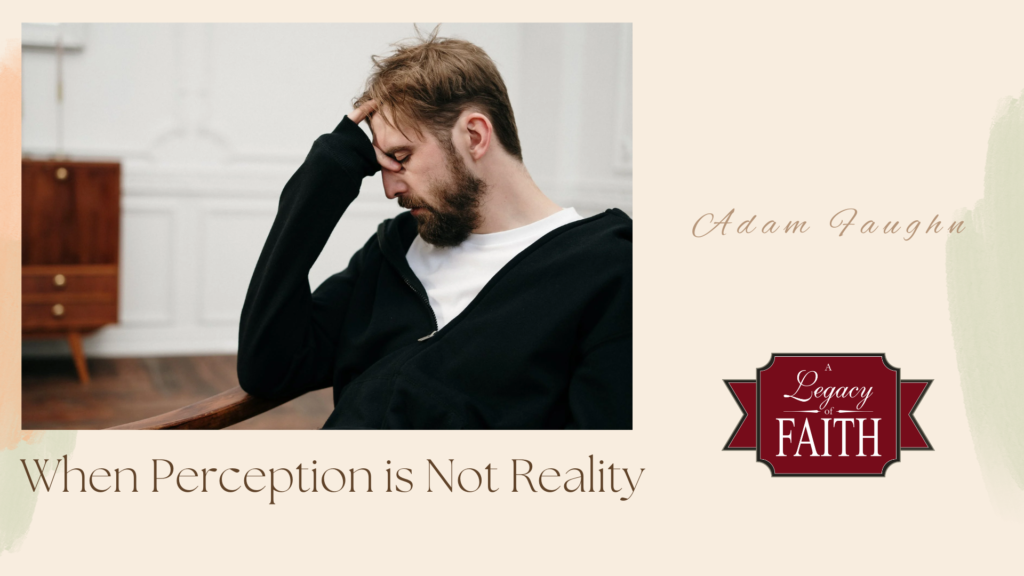When Perception is Not Reality
I’ve seen it many times, both in conversations and in social media posts. Frankly, I am sure that I have been guilty of it myself. In fact, I would guess that each of us has at some point–or many points–in our lives.
I saw it again in the relatively recent past and it got the idea for this article started in my mind. I was reading a social media post that was connected to an event that I had at least a connection to. As I read, I was struck by how there were many facts right beside many things that I knew to be false, but that were presented as facts.
It reminded me of other interactions I have had with people who were hurt, grieving, angry, or otherwise emotional. And, as I said, I am sure it has happened to me in those times also. It is when that person’s perception is not actually reality.
And it is hard to deal with.
I don’t want to just brush it aside and say, “Well, our minds play tricks on us.” That could be true to a point, but it seems shallow when you are truly desiring to help someone.
What do you do? You state the truth. Over and over and over. And without apology.
The Bible teaches us to be people who are “speaking the truth in love” (Ephesians 4:15). There is no restriction on that command for various circumstances. Sometimes, as hard as it may be, the loving thing to do is to remind someone of reality.
It is not that, while they are grieving, we just blast them. It could be, though, that we have to put an arm around them and kindly say, “I know you are hurting, but that’s just not what happened. I was there. Let me remind you of the truth.” They may not want to hear it. They may, frankly, hate it. But that is the loving thing to do.
What happens more often is that the person actually knows the truth and appreciates that you have not let their emotions “win” in the moment. They are grateful that you have kept their thinking in reality and not in their own made-up world.
It takes knowing people, and we must remember to be loving and kind. But when perception is not reality, we need someone near us who loves us enough to tell us what reality actually is…
…oh, and not on social media. If at all possible, go to them and talk to them! After all, it’s better to have a conversation about reality actually IN reality; not virtual reality.
AUTHOR: Adam Faughn



